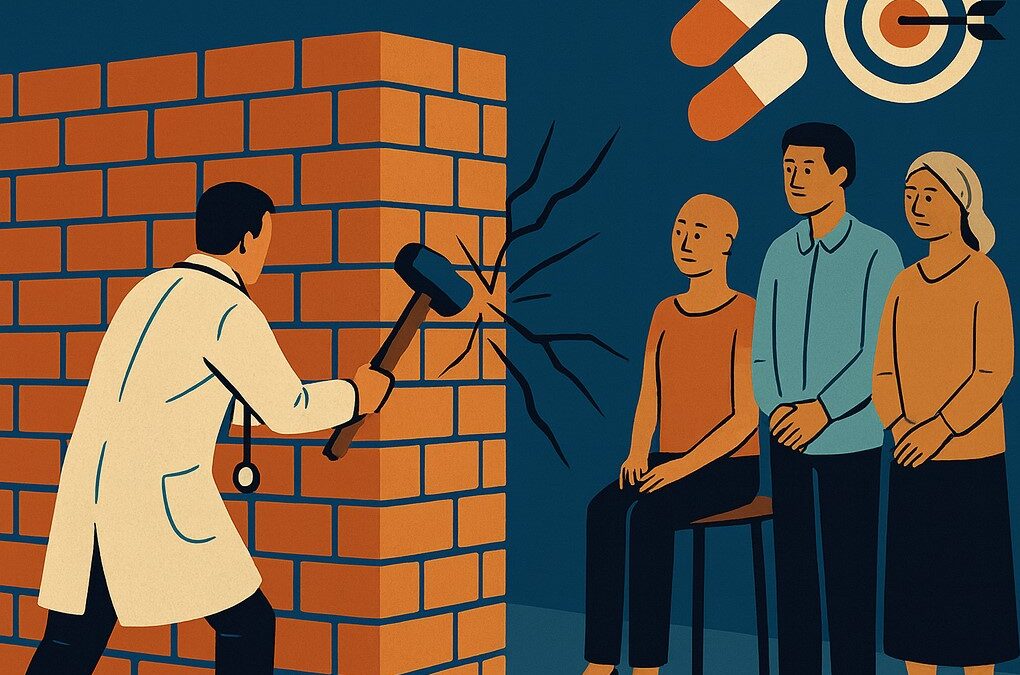Precision oncology has fundamentally reshaped the treatment paradigm within the field, with individualized biomarker-matched therapies enhancing the arsenal oncologists use to manage cancer.
For the evolving ecosystem of precision oncology to advance toward a nationwide integration, efforts should focus on expanding access to genomic expertise, molecular tumor boards, and clinical trial infrastructure – resources that remain scarce outside academic centers. There thus arises a need to shift the strategic approach to advancing precision oncology so that it emphasizes not only technological and pharmacological progress but also clinical utility and broader accessibility.
Significant efforts have been made toward establishing comprehensive molecular profiling in first-line decision-making, where clinically appropriate. Non–small cell lung cancer (NSCLC) has long exemplified the integration of baseline molecular testing; where genomic alterations such as EGFR mutations, ALK and ROS1 rearrangements, MET exon 14 skipping, BRAF V600E mutations, and PD-L1 expression levels are systematically assessed to guide personalized therapy. Similarly, in breast cancer, estrogen receptor (ER) and progesterone receptor (PR) expression, and epidermal growth factor receptor 2 (HER2) expression/amplification are predictive biomarkers evaluated at baseline. Furthermore, tumor genotyping for PIK3CA and ESR1 mutations has become clinically actionable, with FDA approvals of specific drug classes for these biomarker-defined subsets of hormone receptor-positive breast cancer. These models illustrate that when actionable biomarkers are implemented, testing informs therapeutic decision-making and improves clinical outcomes.
In terms of real-time monitoring of tumor burden and therapeutic response, liquid biopsy analyses have emerged as paradigm-shifting technologies; longitudinally assessing circulating tumor DNA (ctDNA) dynamics and evaluating residual disease across stages and therapies. Liquid biopsies also allow for tracking tumor evolution, detecting emerging resistance, elucidating mixed responses or stable disease, and identifying recurrence before it becomes radiographically or clinically apparent.
Establishing precision oncology as the standard of care, however, requires two key elements: technology to advance cancer discovery and education to scale its impact. By providing expert molecular interpretation and implementing decision-support tools in community clinics, we can expand access and enrolment in biomarker-matched therapies and clinical trials.
At this precise intersection – between education and technology – we are building a precision-oncology decision-support platform embedded within the Johns Hopkins Molecular Tumor Board to standardize evidence assessment and expand equitable access to expert interpretation and recommendations. In line with the scope of the NCI Community Oncology Research Program – which bridges clinical trials and care delivery research with community clinics – we envision that our initiatives will help operationalize precision oncology and create clear on-ramps to clinical trial screening and enrolment.
Outreach programs tailored for community oncologists, improved referral networks, and regionally or virtually hosted case-based molecular tumor boards (MTBs) have further democratized access to genomic expertise and improved clinician confidence in navigating molecular findings. Importantly, these educational models should be sensitive to workflow realities in high-burden settings and emphasize the clinical utility of precision oncology approaches. Expanding genomic literacy beyond the physician level to include nurse navigators, genetic counsellors, and case managers can further support patient-centered education, and increased engagement in shared decision-making processes, including clinical trial participation.
Internationally, promising models are emerging. Regional MTBs supported by international consortia have demonstrated feasibility and clinical benefit even in resource-constrained settings, providing a blueprint for scalable transnational and supranational precision oncology frameworks.
The future of oncology depends not only on identifying new biomarkers and developing advanced targeted therapies, but also on breaking down the educational and logistical barriers that restrict their access. Through the meaningful work of precision oncology groups, including our own at the Johns Hopkins MTB, we are hopeful that soon precision oncology will evolve from a specialized innovation into an accessible standard, embedded across all levels and stages of the cancer care continuum.

